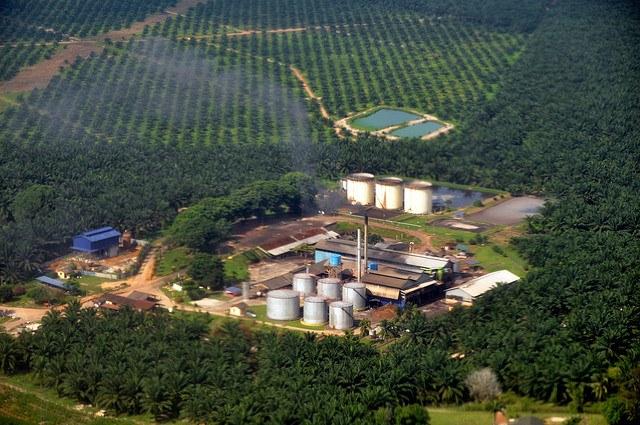
Many of the largest players in the palm oil industry have made commitments to make their supply chains more sustainable. But what do all these commitments really mean? Luckily, the Rainforest Action Network (RAN) can help us sort through it all with its latest progress report.
Titled Testing Commitments to Cut Conflict Palm Oil, the report ranks the strength of palm oil commitments made since the organization launched its Snack Food 20 campaign two years ago. The Snack Food 20 represents the largest corporate palm oil end users.
The palm oil industry is driving deforestation, climate change and human rights abuses. Over the last 18 months, many companies have issued commitments to source sustainable palm oil. The report finds some front-runners and some laggards within the Snack Food 20, which as a group grosses over $432 billion in revenue annually. That represents a potential global power, or as the report states: “Together the Snack Food 20 have the power, through engagement with their global suppliers, to drive a fundamental transformation in the way that palm oil is produced.”
"It is encouraging that many of the biggest players in the palm oil industry are beginning to accept their responsibility for the environmental and social crises they are contributing to, but for many communities and for the Sumatran orangutan, elephant, tiger and rhino, this is a race against time for survival,” Gemma Tillack, agribusiness campaign director for RAN, told TriplePundit.“To achieve the tipping point needed to truly change business-as-usual we need all actors on board –– including PepsiCo, Kraft Heinz, and the instant noodle giants Nissin Foods and Toyo Suisan –– and we need them to act now.”
Good news should come first, so let’s first look at the front-runners. These companies not only released responsible palm oil commitments, but also go beyond the standards of the Roundtable on Sustainable Palm Oil (RSPO), a certification often criticized for not going far enough. The strongest commitments include deadlines to eliminate suppliers that traffick conflict palm oil by the end of 2015, including Kellogg, Mars, General Mills, ConAgra Foods, Krispy Kreme Doughnuts and the J.M. Smucker Co.
The report also notes a wealth of laggards, including PepsiCo, Toyo Suisan Kaisha, Nissin Foods Holdings Co., Hillshire Brands Co., Grupo Bimbo, Kraft Foods, H.J. Heinz Co., Campbell Soup, Hormel Foods and Unilever. They lack either a responsible palm oil commitment or have a weak policy without adequate requirements for suppliers to stop destroying rain forests and peatlands and end human and labor rights abuses.
Now on to the really bad news. There are not true leaders among the Snack Food 20. What is a true leader? To earn these bragging rights, a company must “cut conflict palm oil from global supply chains by adopting and fully implementing a time-bound, responsible palm oil procurement policy,” according to the report, and can “guarantee to their customers that all their branded products, regardless of which country they are sold in, are free of conflict palm oil." Unfortunately, none of the Snack Food 20 meet this definition of a true leader.
How the FDA’s ban on partially hydrogenated oils may lead to more responsible palm oil sourcing
This week, the U.S. Food and Drug Administration finalized its decision to revoke the “generally recognized as safe” (GRAS) status of partially hydrogenated oils. The FDA is requiring food manufacturers to remove oils by June 18, 2018.
As Lael Goodman, an analyst in the Tropical Forest and Climate Initiative for the Union of Concerned Scientists, states in a blog post, the announcement “likely means an increased amount of palm oil (a trans fat-free vegetable oil) in the diet of Americans and an opportunity for companies to source only palm oil that is deforestation and peat-free.”
Simply put, as companies remove hydrogenated oils from their food products, they will likely turn to palm oil as a replacement. Hopefully, that will serve as an impetus to make the palm oil supply chain more sustainable -- although some fear it may have the opposite effect.
Image credit: Flickr/Marufish

Gina-Marie is a freelance writer and journalist armed with a degree in journalism, and a passion for social justice, including the environment and sustainability. She writes for various websites, and has made the 75+ Environmentalists to Follow list by Mashable.com.














